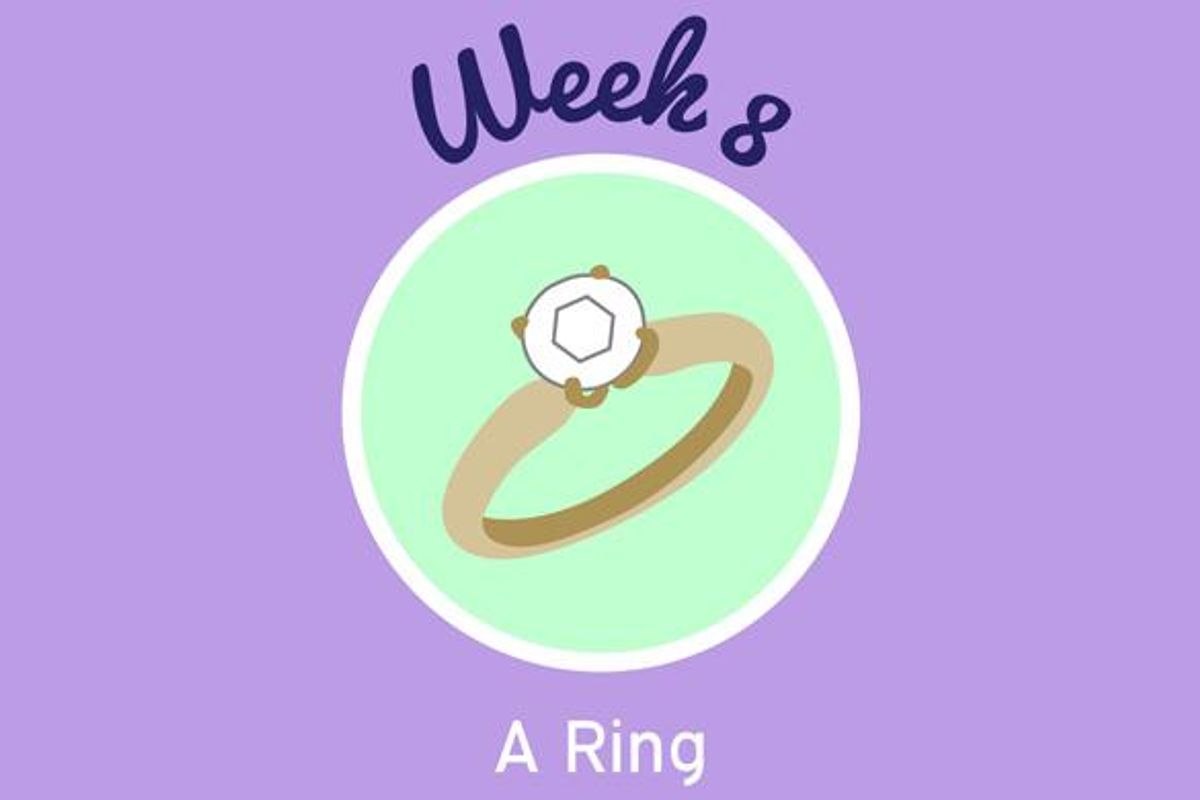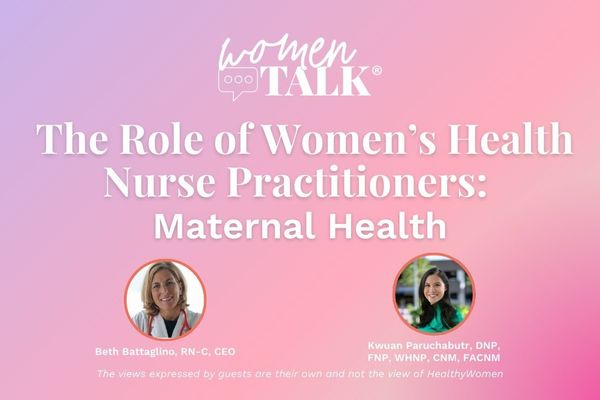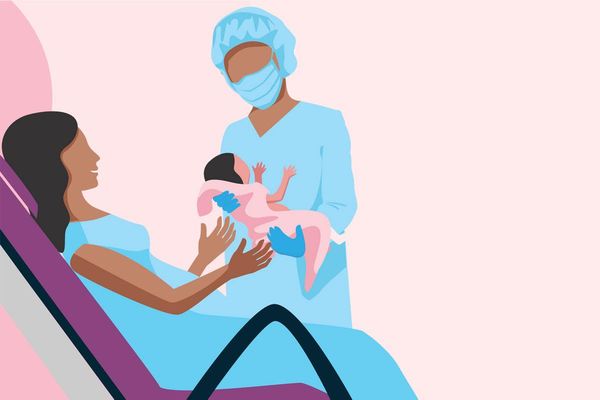By week eight, your little one is about the size of a ring, and there are many tiny, yet important, parts of her developing—including the fingers, toes, airways and brain cells.
UNDERSTANDING YOUR BODY: Physical Changes During Pregnancy
Tip of the week:
It may seem a little early at this point—particularly if the thought of labor is still a little scary—but now is actually a good time to start thinking about how you'll want to deliver. If your goal is to give birth at home or at a birthing center, it's important to choose a provider who works in those environments. If you have strong feelings about cesareans, use of drugs during labor and delivery or other issues, discuss those with your provider to make sure you're on the same track. Also do your research and talk with your partner about your preferences, so that you can make informed decisions now and throughout the rest of your pregnancy.
If you could see your baby, you'd notice that she has teeny webbed fingers and toes and perhaps even small eyelids that will soon cover her sensitive eyes. The very tip of her nose may also be starting to form, as well as the upper lip. Behind the face, nerve cells are beginning to connect with one another and form what will eventually become complex neural pathways.
A little farther down, your baby's breathing tubes are developing to reach her lungs. Moreover, her very important aortic and pulmonary valves in her heart have formed, helping the muscle to beat at an amazing 150 pulses per minute.
If your pregnancy is considered high risk, you'll likely have already been to see your health care provider. However, for many pregnancies, the first prenatal visit takes place somewhere between now and week 10.
At your first appointment, your health care provider will complete a comprehensive health history. He or she will ask whether you have any medical or psychosocial issues, the date of your last menstrual period, your history of birth control methods and other medications, if you've previously been hospitalized, whether you have any drug allergies and about your family's medical history. You may want to write down these details if you think you could have trouble remembering everything.
The visit will include measuring your blood pressure, height and weight, as well as a breast and pelvic exam, with a pap test if you haven't had once recently. They'll also likely take blood to test for your blood type, anemia and other medical and genetic conditions. It's still a little early to hear your baby's heartbeat, so this exciting milestone may have to wait until your next visit.
Your health care provider may also talk to you about more extensive genetic testing and offer you screening tests that can give you some information about your baby's risk for Down syndrome as well as other chromosomal problems and birth defects.
There is a new two-part prenatal screening that can be done between weeks 9 and 13. It combines a blood test and a specialized ultrasound to assess your baby's risk for Down syndrome or trisomy 18. This screening is less invasive than amniocentesis or chorionic villus sampling (CVS) but is not definitive. If risk is indicated, the screening may help you decide whether you want further testing.
If so, CVS is a genetic test that can be performed between weeks 10 and 12 of pregnancy. The doctor removes a small piece of your placenta to check for potential genetic problems. Although CVS cannot detect neural tube defects, some women prefer it because they can get results sooner than with an amniocentesis, which is usually done between weeks 15 and 18.
Both tests are invasive and include a very slight risk of complications, including miscarriage, so it's important to do your research and talk to your partner and health care professional to decide what testing is right for you. Click here to learn more about genetic testing.
Finally, your provider may speak to you about lifestyle considerations, including nutrition and exercise. Bring a list of questions regarding your concerns and current habits. Now is the time to ask about activities that you are concerned about continuing during pregnancy.
You also might want to ask about the practice's birth philosophy to make sure it's in line with your own. For instance, if your goal is to have a natural childbirth, talk to them about it and make sure they are supportive of your plans.
If you leave your visit doubting your choice of providers, keep in mind that you can always change practices if you feel uncomfortable or are concerned that their philosophy of childbirth differs from yours. If you want to continue with the provider you've chosen, you'll likely schedule an appointment for four weeks later before leaving the office.
Read more:
Sex During Pregnancy: What Works, What Doesn't
Prenatal Tests
The Flu Vaccine During Pregnancy: Is It Safe?







